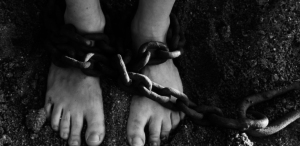
Tuesday, April 24, 2018
Moving On: How to Find New Purpose After a Conviction
You messed up. Whatever the case is, you now find yourself on the wrong end of the justice system. You are dealing with all the things that come with a legal case: tons of legal fees, pain with your family, and perhaps incarceration.
This is a tough time, but you need to stay focused and get through this. The following are some ideas to help you find renewed purpose in your life.


Wednesday, April 18, 2018
How Common is Prosecutorial Overreach in the United States?
Our mission is to help those who have been accused or convicted of a crime get back on their feet. If this is you, you know that this is an uphill battle. There are forces in this world that are hellbent on keeping you down. Unfortunately, in some jurisdictions, one of these forces is the prosecutor’s office themselves.
Prosecutorial overreach runs rampant in U.S. courts, both at the state and federal levels. Law enforcement and prosecutors perceive the need to play tough to build cases and secure convictions. While being tough to get results may be part of their job descriptions, many fail to recognize that playing fair is also their duty.

Criminal law provides for crucial procedures and rights designed to provide the accused with the presumption of innocence and the right to a fair trial, in conjunction with the 4th, 5th, 6th, 7th, and 8th amendments. When prosecutors decide to take a win-at-all-costs mentality, they are tempted to cheat, or at least cut corners. When they cheat, they violate defendant's constitutional rights. Unfortunately, this results in many defendants being convicted of crimes they did not commit – or the punishment won’t fit the crime. One of the most common forms of prosecutorial overreach is a violation of the Brady rule. This rule requires prosecutors share any exculpatory evidence with the defense. Exculpatory evidence, which shows a defendant's innocence, usually winds up in the hands of prosecutors as a result of law enforcement investigations. For example, a police report of a witness's description of a suspect that does not match the defendant would be exculpatory. When prosecutors fail to turn such a piece of evidence over to the defense, they violate the Brady rule.
In 2013, the Chief Judge of the 9th Circuit U.S. Court of Appeals, Alex Kozinski, wrote in a judicial opinion, "There is an epidemic of Brady violations abroad in the land.” The judge went on to say he believes judges must work harder to stop these violations. In the case, he wrote the opinion for, prosecutors failed to turn over information that the scientist who conducted forensic testing in the case had a history of providing wrong information in criminal law cases, including intentional misconduct that resulted in the conviction of innocent people.

Part of the problem stems from the fact that prosecutors face too little oversight. As the system works, prosecutors have the discretion to decide what qualifies as exculpatory. Since they are under high pressure to win cases, there is a tendency toward bias in making these determinations. When courts find that prosecutors have withheld exculpatory evidence, prosecutors rarely face serious consequences. Overreach from a prosecutor, whether from a Brady violation or other misconduct, greatly diminishes defendant's rights to a fair trial. Defense attorneys work hard to keep prosecutors honest by demanding all exculpatory evidence, and when exculpatory evidence is withheld, they demand the dismissal of wrongful charges.
The Brady Rule

Criminal law provides for crucial procedures and rights designed to provide the accused with the presumption of innocence and the right to a fair trial, in conjunction with the 4th, 5th, 6th, 7th, and 8th amendments. When prosecutors decide to take a win-at-all-costs mentality, they are tempted to cheat, or at least cut corners. When they cheat, they violate defendant's constitutional rights. Unfortunately, this results in many defendants being convicted of crimes they did not commit – or the punishment won’t fit the crime. One of the most common forms of prosecutorial overreach is a violation of the Brady rule. This rule requires prosecutors share any exculpatory evidence with the defense. Exculpatory evidence, which shows a defendant's innocence, usually winds up in the hands of prosecutors as a result of law enforcement investigations. For example, a police report of a witness's description of a suspect that does not match the defendant would be exculpatory. When prosecutors fail to turn such a piece of evidence over to the defense, they violate the Brady rule.
Judge Says Brady Rule Violations Are Epidemic
Prosecutors Facing Little Oversight

Part of the problem stems from the fact that prosecutors face too little oversight. As the system works, prosecutors have the discretion to decide what qualifies as exculpatory. Since they are under high pressure to win cases, there is a tendency toward bias in making these determinations. When courts find that prosecutors have withheld exculpatory evidence, prosecutors rarely face serious consequences. Overreach from a prosecutor, whether from a Brady violation or other misconduct, greatly diminishes defendant's rights to a fair trial. Defense attorneys work hard to keep prosecutors honest by demanding all exculpatory evidence, and when exculpatory evidence is withheld, they demand the dismissal of wrongful charges.
Image Credit: Eric Harron Criminal Defense
Sunday, April 1, 2018
Made a Mistake? Don't Give Up, Don't Ever Give Up
Realizing the Mistake
The first step is realizing that you’ve made a mistake, and admitting that freely. According to Rowdy G. Williams, “being convicted of driving under the influence (DUI) can lead to serious penalties that have a long-lasting effect on your life.” Not just DUI convictions, but any conviction can have long lasting effects on your life and livelihood.
Taking responsibility for the action helps to reinforce any change that will follow. Try to pick yourself up after making a mistake rather than blaming yourself repeatedly. The negative thoughts will do more harm than productivity. Similarly, avoiding responsibility and refusing to admit that a mistake happened is as non-productive. Own your actions, learn from them, and develop different habits to move past them.
Learning from the Process
Take the opportunity to learn from your mistake. Understand that in order not to be credited with another conviction, your thought process must change. Learning about the science behind the problem may help to motivate you to make changes. Think about your future and weigh the consequences of your actions before making another mistake. Enlist the help of family, friends, medical practitioners, research studies, library books, and any other sources you can find. Educating yourself about your issues can be an empowering way to begin seeking alternatives and behavior changes. The more you know, the more options are available to you.
Practicing Different Habits
Finally, invest in practicing different habits. Use tools like group meetings, a support system of friends and family, a sponsor, and involving yourself in different social circles to help you along the way. Nolef Turns, Inc. is a great resource for finding support from others dealing with convictions. Consider being a mentor/buddy for someone dealing with legal issues or for a child with an incarcerated parent. You might even delve into different self-care practices by taking time to discover which activities bring you joy. Creative outlets like writing, reading, dance, and blogging can be wonderfully productive outlets. Perhaps your outlet comes in the form of a sport, exercise, or another form of fitness. Regardless of what makes you happy, practice it regularly to supplement fostering new habits.
When you make a mistake, make every effort to pick yourself back up afterward. Admit that it happened, take responsibility, learn about alternatives, and dedicate yourself to behavior change so that the same mistake does not occur repeatedly. Above all, be patient and kind to yourself; self-change takes time.
Finally, invest in practicing different habits. Use tools like group meetings, a support system of friends and family, a sponsor, and involving yourself in different social circles to help you along the way. Nolef Turns, Inc. is a great resource for finding support from others dealing with convictions. Consider being a mentor/buddy for someone dealing with legal issues or for a child with an incarcerated parent. You might even delve into different self-care practices by taking time to discover which activities bring you joy. Creative outlets like writing, reading, dance, and blogging can be wonderfully productive outlets. Perhaps your outlet comes in the form of a sport, exercise, or another form of fitness. Regardless of what makes you happy, practice it regularly to supplement fostering new habits.
When you make a mistake, make every effort to pick yourself back up afterward. Admit that it happened, take responsibility, learn about alternatives, and dedicate yourself to behavior change so that the same mistake does not occur repeatedly. Above all, be patient and kind to yourself; self-change takes time.
Resources for Finding New Employment After Serving Time for Domestic Violence
If you have ever served time for a domestic violence conviction, it may seem difficult to secure employment. Summit Defense explains that “even a first-time conviction can lead to serious consequences and affect your employment prospects, your good name, burden you with a permanent criminal record, impose a restraining order and compromise your immigration status.” We at Nolef Turns, Inc. recognize that the transition out of prison comes with difficult and unique challenges for each individual, and we are dedicated to helping educate you so that you can get back on your feet as easily and quickly as possible. Don't let your past continuously hinder your future. There are resources to acquire quality employment with the presence of domestic violence on your record.
Conclusion
In today's economy, finding the ideal job is difficult for most of the population. If you take the time to develop your skills and use the various resources provided, you will put yourself on a path to success. Don't let your mistakes define you and keep seeking advancement. If you need more information, Nolef Turns, Inc. is here for you. For help on pre-release services, re-entry services, and post-conviction services, click here. We have a growing series of programs to help you succeed.
Works Cited: http://www.hirenetwork.org/
http://njsnap-ed.gov/
Contact Your State Agency
Your local state department of labor has an abundance of opportunities. The state seeks employers that will hire candidates with charges on their background. If eligible, employers will receive a Work Opportunity Tax Credit (WOTC) for hiring individuals from different targeted groups. Individuals with convictions of domestic violence are a part of the group. To assist job seekers, the state will often hold affordable (sometimes at no cost) seminars and training courses. Finding employment can be competitive so it is highly recommended to take advantage of courses that are available. There are programs to assist with interview skills, resume preparation, and on the job training. Research your state programs and make the necessary connections to improve your future.
Your local state department of labor has an abundance of opportunities. The state seeks employers that will hire candidates with charges on their background. If eligible, employers will receive a Work Opportunity Tax Credit (WOTC) for hiring individuals from different targeted groups. Individuals with convictions of domestic violence are a part of the group. To assist job seekers, the state will often hold affordable (sometimes at no cost) seminars and training courses. Finding employment can be competitive so it is highly recommended to take advantage of courses that are available. There are programs to assist with interview skills, resume preparation, and on the job training. Research your state programs and make the necessary connections to improve your future.
National Hire Network
This organization specializes in assisting ex-offenders with employment needs. The number of opportunities vary by state. They have a list of employers that are willing to overlook domestic violence convictions. National Hire is based on fair hiring practices and partners with companies to open doors of opportunity.
This organization specializes in assisting ex-offenders with employment needs. The number of opportunities vary by state. They have a list of employers that are willing to overlook domestic violence convictions. National Hire is based on fair hiring practices and partners with companies to open doors of opportunity.
Federal Bonding Program
This program was established by the U.S. Department of Labor in 1966. At no cost to the employee or employer, Fidelity Bonds are given to companies to hire candidates that pose a potential risk. A Fidelity Bond is a type of insurance that covers losses that may be incurred by the commitment of fraudulent acts by specific individuals. Companies feel more inclined to hire a candidate with a background when the stakes are not as high.
This program was established by the U.S. Department of Labor in 1966. At no cost to the employee or employer, Fidelity Bonds are given to companies to hire candidates that pose a potential risk. A Fidelity Bond is a type of insurance that covers losses that may be incurred by the commitment of fraudulent acts by specific individuals. Companies feel more inclined to hire a candidate with a background when the stakes are not as high.
Honesty
It is tempting to deny that you have a complicated background but being dishonest will only prolong your search for employment. Honestly, truth is the best policy. It is not recommended to blatantly present the information during an interview. If an offer of employment is presented and the background portion is needed, be truthful. Sometimes, a company's policy for hiring candidates with backgrounds varies from one person to the next due to the nature of the incident. In some cases, the type of offense and the details of each case will be considered. If an employer asks for a statement about the situation, they are asking for clarification. This is your opportunity to show the employer that you can be upfront and forthcoming. Explain why the incident occurred and be remorseful about the situation if it is appropriate. No matter what, you want to remain genuine at all times.
It is tempting to deny that you have a complicated background but being dishonest will only prolong your search for employment. Honestly, truth is the best policy. It is not recommended to blatantly present the information during an interview. If an offer of employment is presented and the background portion is needed, be truthful. Sometimes, a company's policy for hiring candidates with backgrounds varies from one person to the next due to the nature of the incident. In some cases, the type of offense and the details of each case will be considered. If an employer asks for a statement about the situation, they are asking for clarification. This is your opportunity to show the employer that you can be upfront and forthcoming. Explain why the incident occurred and be remorseful about the situation if it is appropriate. No matter what, you want to remain genuine at all times.
Conclusion
In today's economy, finding the ideal job is difficult for most of the population. If you take the time to develop your skills and use the various resources provided, you will put yourself on a path to success. Don't let your mistakes define you and keep seeking advancement. If you need more information, Nolef Turns, Inc. is here for you. For help on pre-release services, re-entry services, and post-conviction services, click here. We have a growing series of programs to help you succeed.
Works Cited: http://www.hirenetwork.org/
http://njsnap-ed.gov/
Subscribe to:
Comments (Atom)

